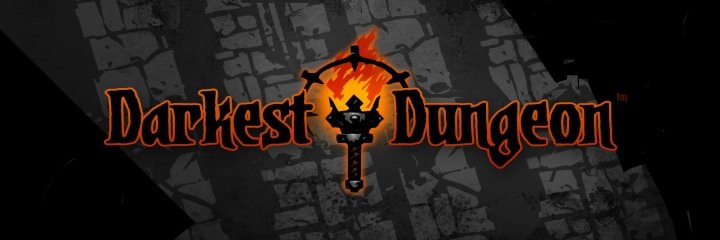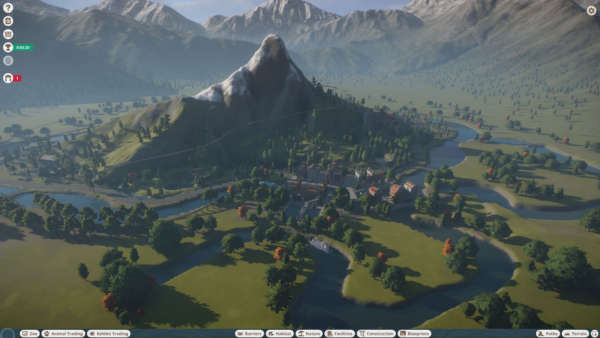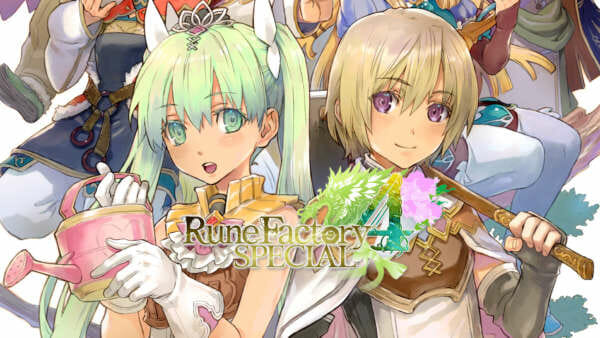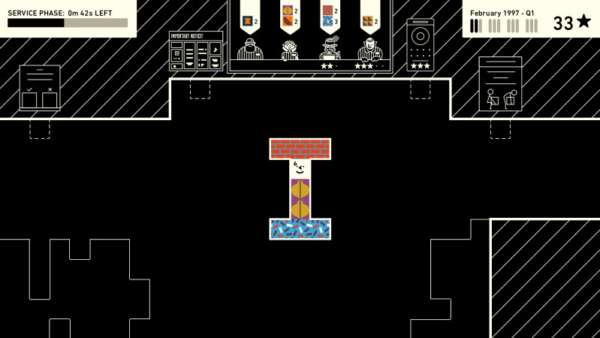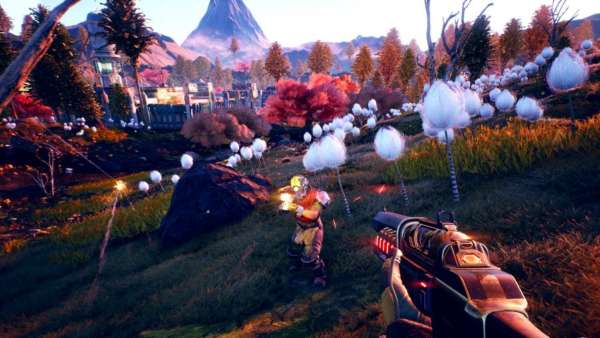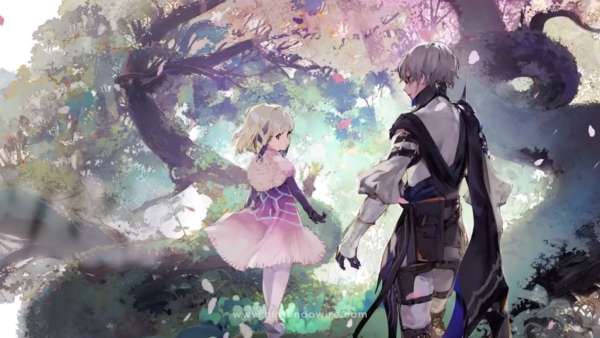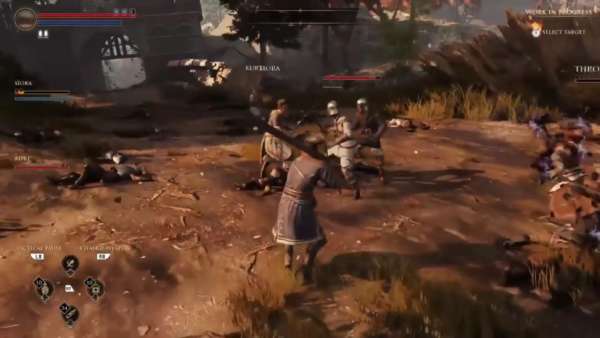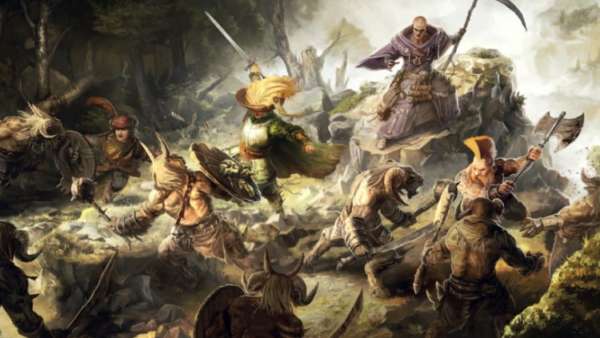You’re down to your last torch as you stagger through the polluted ruins. Your Plague Doctor babbles about the horrors in the dark, while your Crusader hacks up blood from his infected wound. As you push through into the final room, you are startled by a party of undead warriors. Your healer begins to cry while your Bounty Hunter has a surge of bravery, ready to take on these horrors. The darkness sets in as the battle rages on. You hope that the bar is free after this expedition.
This is the average experience of playing Red Hook’s Darkest Dungeon, a brand new gothic roguelike which is equal parts X-Com, equal parts Tales from the Crypt. This game revels in the peaks and troughs of adventuring, with a successful scouting party being contrasted by a disastrous assault against a mutated pig lord, as both you and your party members try to keep control of your stress levels. This is not a game for the faint-hearted and yet, even in the fledgling days of Early Access, Darkest Dungeon has a ton of content for adventurers to struggle through.
The game’s premise is that you are the heir to a country estate located somewhere between the Mountains of Madness and Transylvania, which has been overrun by all sorts of eldritch horrors and human evils, thanks to the meddling of your ancestors. It is your job to not only restore the estate to its former glory, but to vanquish the horrors that have taken over the land and clear out the eponymous Darkest Dungeon. Sounds fun, right?
Darkest Dungeon is absolutely dripping with atmosphere, from the grimy comic book visual style, to the game’s narrator, who sounds the result of if you locked the narrator from Bastion in a room with Cthulhu for a couple of weeks. This game is gothic in every sense of the word and really sells you on just how hopeless this world is.

A night out in the Hamlet will usually end up with you being eaten by a grotesque pig prince.
Much like X-Com, Darkest Dungeon is split up into 2 phases; the Hamlet phase and the Adventuring phase. The Hamlet acts as your hub, giving you access to your roster of party members, along with various locations around your estate to both upgrade and calm your adventurers. The Adventuring phase is where you actually go out into the world, defeating monsters, gathering loot to upgrade your Hamlet and gaining experience for your fighters. This is where one of Darkest Dungeon’s main mechanics comes in, which is the Stress meter that each party member has below their health bar. As you quest through all sorts of horrific locations, your adventurers will gradually become more stressed, as the toll of dungeon crawling catches up with them. You can manage stress through certain character abilities or by sending party members to places in the Hamlet like the Abbey or the Tavern. While packing off your Graver Robber to play some cards or your Vestal to meditate reduces their overall stress level, it takes them out of your pool of fighters for your next adventure. This effectively forces you to balance your heroes’ stress levels with your chances of success in the next outing, as well as your bank balance.
If you choose to send a stressed fighter back into the heat of battle, you then have to deal with Darkest Dungeon’s next big mechanic, which is the Affliction System. Letting your characters’ stress levels get too high causes their resolve to be tested, which can lead to one of two outcomes. If Fate chooses to smile upon you, they may excel in the darkest of moments, gaining a buff to all their stats or letting out a rousing battle cry which also bolsters everyone else’s resolve. However, it is more often the case that your party members will crack under the pressure and gain an Affliction like Paranoid or Abusive. This will cause not only adverse effects on them, but on the rest of your adventurers too, as they have to manage a screaming Paladin along with a horde of infernal horrors. This can quickly lead to your whole party becoming stressed out, often resulting in a total party wipe or you being forced to retreat from the instance, only further raising the stress levels of everyone involved.
Along with that, your roster can gain buffs and debuffs from either completing a quest or interacting with certain objects during an instance. This can result in one of your party getting Syphilis off a corpse you found on your journey, or become a born again believer in the divine after a particularly tough fight. All of this adds to Darkest Dungeon’s core feeling of being overwhelmed by the world in which you are in. At no point does this game want you to feel at ease or comfortable. Like your poor fighters, the game wants you to feel stressed out as you manage not only your success as an adventurer, but the mental health of your combatants.

Anyone for a sing song?
While this is all very effective in establishing tone, it can make the start of the game feel incredibly unfair. Darkest Dungeon is very much at the whim of RNG, which can make your first couple of runs completely up to chance rather than down to skill at the game. During my first 5 runs, my party wiped twice and I had to retreat twice. This left me with a completely stressed out party and no money, which only exacerbated my problems when I was forced to go out adventuring again. Moreover, I only proceeded to get shafted by the Random Number Goddess, as I fell into trap after trap, and had no way of getting past roadblocks besides taking an even greater hit of health and stress. Eventually, you will have a couple of good runs, you won’t get completely destroyed by mobs and you will actually be able to develop the Hamlet. However, the failed runs leading up to the eventual breakthrough felt plain unfair, rather than punishing but fair.
This is where my main complaint about Darkest Dungeon comes from; the game treads the line between punishing and unfair, often falling into the territory of being just infuriating to play. Having to flee a dungeon because you aren’t powerful enough to take on a boss is fine, but being utterly obliterated in the second room of a standard dungeon because the enemy landed 2 criticals, pushed your Healer over the edge and forced you back to the Hamlet with a broken party for the 4th time is not. Again, once you break through the initial pain barrier and get to grips with how Darkest Dungeon’s systems work, the game is an absolute blast but the first few hours can be absolutely soul destroying, and not in a good way.
The battle system itself is great fun once you wrap your head round all the specifics of it. You have your 4 party members who can swap positions both during and outside fights, and each has 4 abilities which can be used relative to you and your enemies’ position. Classes like the Vestal, the game’s equivalent of a Priest, are more suited to the 4th position while the Hellion, Darkest Dungeon’s Warrior, is most effective at the front of the party. Keeping a lid on all the various status effects and mental states of your fighters is the key to success, and once you establish some effective squad compositions, combat becomes incredibly satisfying.
Darkest Dungeon’s classes range from incredibly useful to somewhat useless. The Hellion is an absolute powerhouse who can rip through enemies, while the Jester is fantastic at both buffing your party and inflicting Bleeding damage on your foes. Classes like the Occultist don’t seem to fill a particular niche, not having the damage output of other ranged attackers yet lacking the ability to reliably heal friendlies. There seems to be an imbalance amongst certain classes, leaving some unused while others are dedicated staples in any team. Luckily, Red Hook is actively patching and rebalancing the game and, thanks to the rapidly forming community around Darkest Dungeon, is starting to iron out most of the kinks from launch.

Surprising the enemy is an absolute godsend when your party are getting rather stressed.
Even though the game is still in its early stages, there is so much content for players to sink their teeth into, and there only promises to be more as Red Hook balances and adds extra bits and pieces before Darkest Dungeon’s eventual launch in the latter half of this year. It can be incredibly unfair at times, and there still needs to be a fair bit of balancing out until it is just right, but if you are hankering for another solid indie RPG or are just feeling a bit masochistic, Darkest Dungeon is definitely for you. Expect a proper preview of the game when more content is added and a full review when the game releases later this year.
